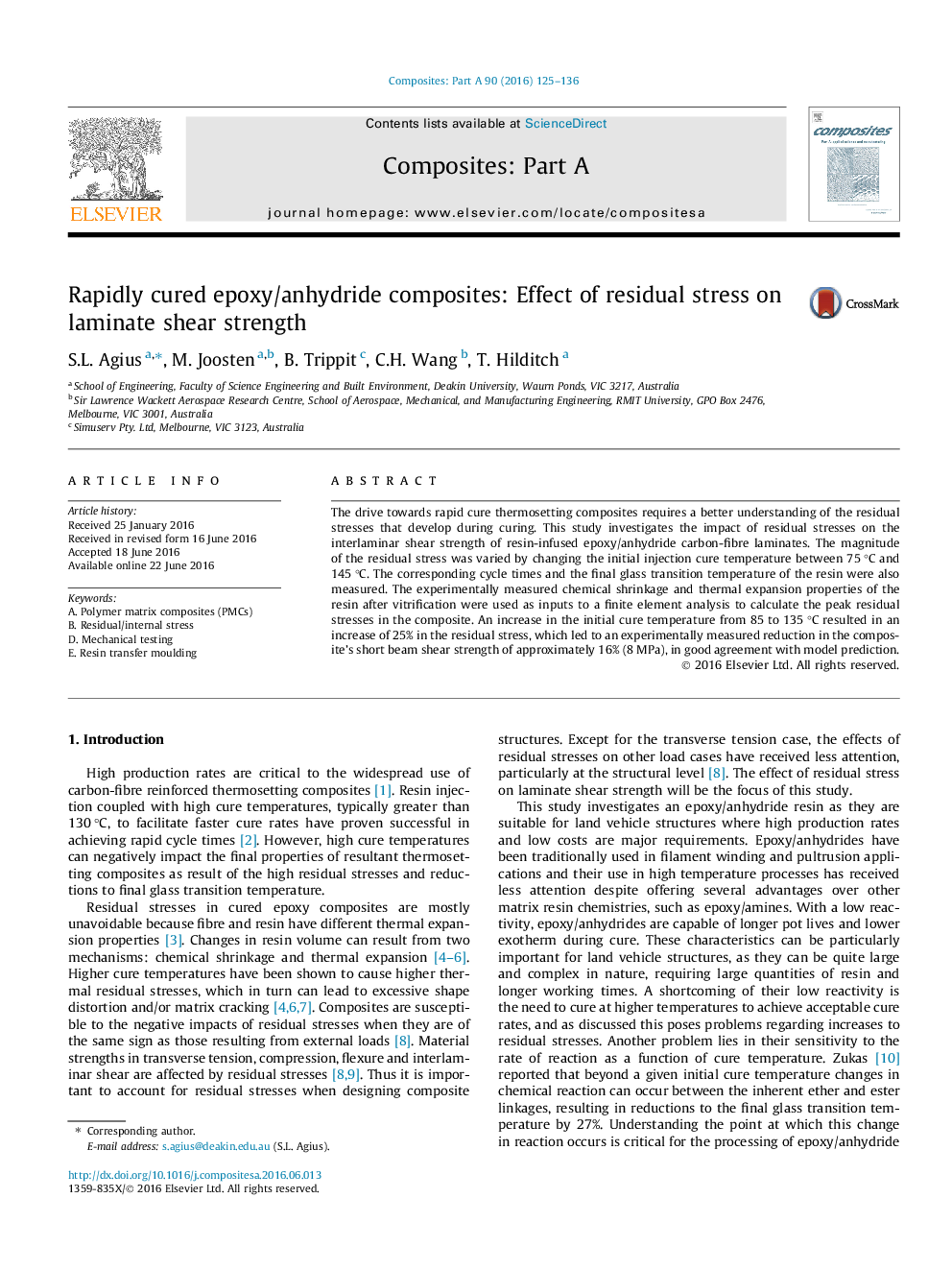| Article ID | Journal | Published Year | Pages | File Type |
|---|---|---|---|---|
| 7890067 | Composites Part A: Applied Science and Manufacturing | 2016 | 12 Pages |
Abstract
The drive towards rapid cure thermosetting composites requires a better understanding of the residual stresses that develop during curing. This study investigates the impact of residual stresses on the interlaminar shear strength of resin-infused epoxy/anhydride carbon-fibre laminates. The magnitude of the residual stress was varied by changing the initial injection cure temperature between 75 °C and 145 °C. The corresponding cycle times and the final glass transition temperature of the resin were also measured. The experimentally measured chemical shrinkage and thermal expansion properties of the resin after vitrification were used as inputs to a finite element analysis to calculate the peak residual stresses in the composite. An increase in the initial cure temperature from 85 to 135 °C resulted in an increase of 25% in the residual stress, which led to an experimentally measured reduction in the composite's short beam shear strength of approximately 16% (8 MPa), in good agreement with model prediction.
Keywords
Related Topics
Physical Sciences and Engineering
Materials Science
Ceramics and Composites
Authors
S.L. Agius, M. Joosten, B. Trippit, C.H. Wang, T. Hilditch,
